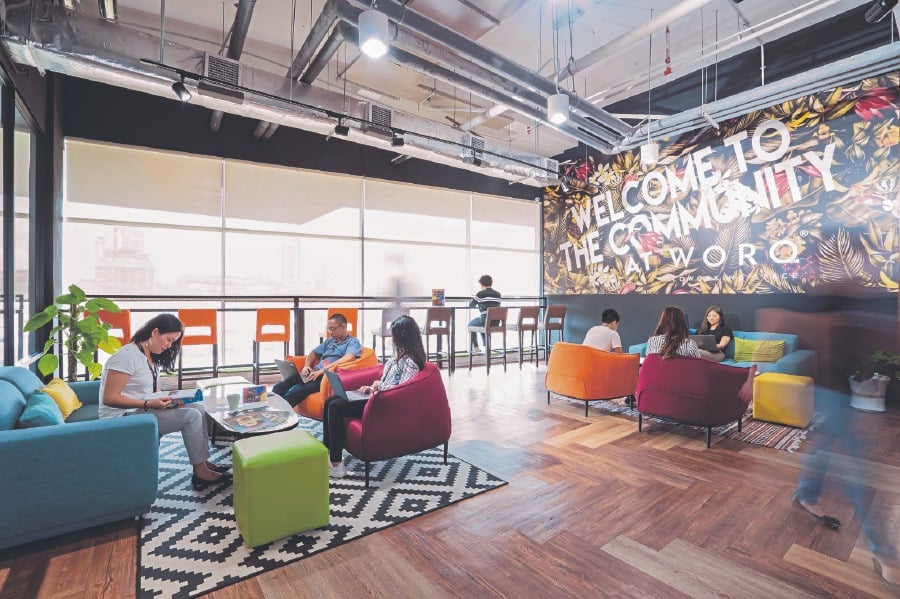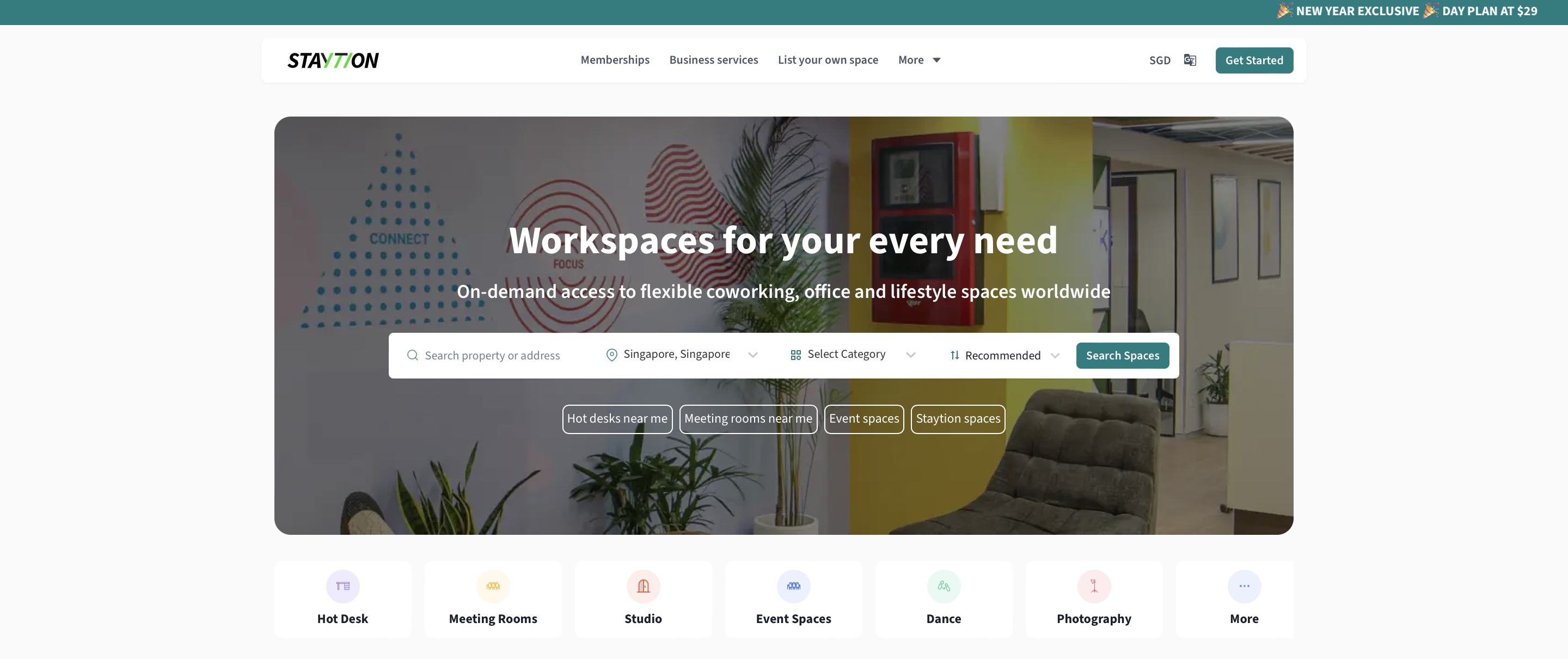Remote Work Revolution: Why Coworking Spaces Are More Relevant Than Ever
 Staytion
Staytion
Introduction
In today’s rapidly evolving work environment, the rise of remote work is undeniable. As the global workforce continues to shift towards more flexible working arrangements, the question of where one can work most effectively has become increasingly relevant. Amidst this transition, coworking spaces have emerged as a pivotal solution. These collaborative environments offer not just a desk or an office, but a vibrant community and a plethora of resources designed to enhance productivity and foster collaboration. This blog delves into why coworking spaces have become more essential than ever in the era of remote work, examining their role in bolstering productivity, facilitating collaboration, and providing the flexibility that modern professionals crave.
The Benefits of Remote Work

Image courtesy: Unsplash
Remote work has ushered in a new era of professional possibilities, significantly altering how businesses operate and how employees execute their tasks. At the forefront of these changes are marked improvements in productivity and work-life balance, which collectively contribute to the appeal of telecommuting.
Increased productivity
One of the most significant benefits of remote work is the noticeable increase in productivity it brings. Without the common distractors present in a traditional office environment, such as impromptu meetings and office chatter, remote workers are able to focus more intently on their tasks. Moreover, the flexibility to create a personalized workspace and schedule that suits one's own peak productivity periods further enhances work efficiency. Studies have consistently shown that remote employees often achieve more in less time compared to their office-bound counterparts, thanks to the autonomy and reduced stress levels remote work provides.
Improved work-life balance
Remote work also offers an improved work-life balance, a benefit highly valued by today’s workforce. The elimination of daily commutes saves time and reduces stress, allowing employees to allocate more hours to personal pursuits, family time, or rest. This flexibility to manage work and personal life commitments leads to happier, more fulfilled employees who are less prone to burnout.
The Rise of Coworking Spaces
As remote work becomes more prevalent, coworking spaces have emerged as a symbiotic trend, supporting the needs of a growing remote and freelance workforce.
Definition and concept
Coworking spaces are shared work environments where individuals from different companies can work independently or collaboratively in a communal setting. These spaces typically offer a blend of office-like infrastructure with the flexibility and casual atmosphere of working from home, thereby creating an ideal environment for innovation and productivity.
Staytion is Southeast Asia's Largest Network of Coworking Spaces. Visit www.gostaytion.com to explore our diverse range!
Popularity among remote workers
Coworking spaces have gained immense popularity among remote workers due to their ability to solve some of the common challenges associated with working from home or coffee shops, such as isolation and distractions. They provide a professional and social atmosphere that encourages networking, collaboration, and a sense of community. Additionally, coworking spaces can offer the change of scenery that many remote workers crave, helping to prevent the monotony that can come with working from the same place every day.
Services and Amenities offered
In addition to offering desks and internet access, coworking spaces often come equipped with a wide range of services and amenities designed to meet the diverse needs of their members. These may include conference rooms, private offices, phone booths for confidential calls, printing services, and even perks like free coffee or wellness activities. These facilities not only cater to the practical needs of remote workers but also contribute to an attractive and stimulating work environment that fosters collaboration and productivity.
Importance of Collaboration in Remote Work

Image courtesy: Unsplash
In the era of remote work, the significance of collaboration cannot be overstated. The synergy created by team members working together can lead to increased innovation, enhanced problem-solving, and a more vibrant company culture. However, achieving effective collaboration in a remote setting presents unique challenges.
Challenges of remote collaboration
Collaborating remotely often means battling against time zone differences, technological glitches, and the lack of spontaneous interactions that naturally occur in an office environment. Communication may become strained, with nuances and non-verbal cues lost in translation over digital platforms. These barriers can lead to misinterpretations, delayed projects, and decreased morale among team members.
How coworking spaces facilitate collaboration
Coworking spaces emerge as a solution to the hurdles of remote collaboration by offering a shared environment designed to foster interaction and connectivity. These spaces provide the infrastructure—high-speed internet, meeting rooms, and communal areas—that facilitate seamless communication and spontaneous brainstorming sessions. Moreover, they bring together a diverse group of professionals, creating opportunities for networking and cross-pollination of ideas.
Case studies of successful collaborations in coworking spaces
Numerous success stories highlight the collaborative power of coworking spaces. For example, a tech startup and a graphic design firm, sharing a coworking space, partnered to create an innovative app that combined their strengths in technology and design. Another case involved freelance writers and digital marketers collaborating on content creation projects, leveraging each other's expertise to enhance their offerings.
Flexibility and Adaptability

Image courtesy: Unsplash
The remote work revolution necessitates not just digital adaptation but also a physical one. The ability to adjust to varying work conditions and environments is crucial for today’s workforce.
Adapting to changing work environments
Remote workers often face the need to shift their workplace setup due to travel, home responsibilities, or simply the desire for a change of scenery. These shifts can impact productivity and well-being if not managed properly.
How coworking spaces provide flexibility to remote workers
Coworking spaces stand as an exemplary model of flexibility and adaptability for remote workers. They offer various setups to cater to different needs - from open desks for day-to-day tasks to private offices for focused work or confidential meetings. The provision of 24/7 access in many cases allows workers to choose their most productive hours, accommodating early birds and night owls alike. Additionally, with locations spread across cities and even countries, coworking spaces enable remote workers to stay productive and connected, no matter where they are in the world. This geographical and temporal adaptability not only supports individual work preferences but also facilitates global collaboration.
Conclusion and Future Outlook
The shift towards remote work has unequivocally changed the landscape of the traditional workplace, propelling coworking spaces into the spotlight. As the digital age continues to evolve, the demand for flexible, collaborative, and productive work environments has never been higher. Coworking spaces, with their unique blend of flexibility, collaboration, and resources, are perfectly aligned with the needs of today’s workforce. They offer a compelling solution to the challenges of isolation and lack of motivation often faced by remote workers, while also fostering a sense of community and networking opportunities that are hard to replicate in isolated home offices.
Looking ahead, the relevance of coworking spaces is only set to increase. As companies and workers alike seek more dynamic and adaptable ways of working, these spaces will continue to innovate, offering more tailored services and amenities to meet the diverse needs of their members. The future of work is hybrid, with a blend of remote and in-office tasks, and coworking spaces are ideally positioned to serve as the nexus of this new work paradigm. They not only cater to freelancers and entrepreneurs but are also becoming an attractive option for larger organizations looking to offer their employees more flexibility.
In conclusion, the remote work revolution has spotlighted the invaluable role that coworking spaces play in today’s economy. Their continued evolution and adaptation to the changing workforce requirements underscore their significance. As we move forward, coworking spaces will undoubtedly remain a key enabler of productivity, collaboration, and innovation in the remote work landscape.
Book a co-working space on GoStaytion today - choose your preferred space and obtain access in real-time.
Subscribe to my newsletter
Read articles from Staytion directly inside your inbox. Subscribe to the newsletter, and don't miss out.
Written by

